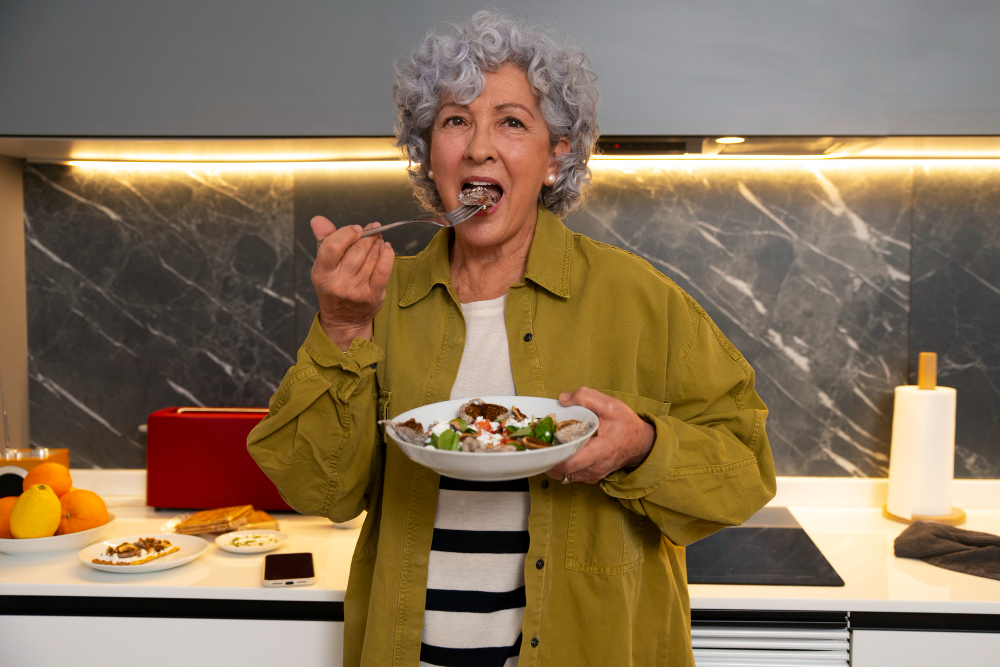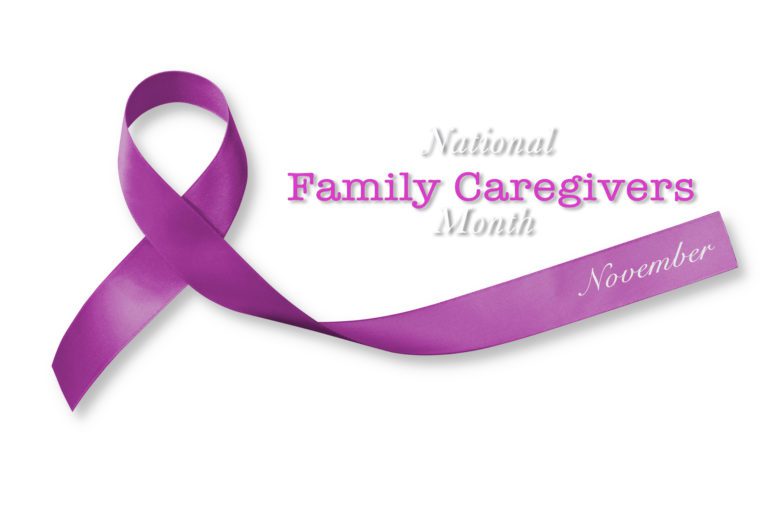As we age, our bodies go through many changes—metabolism slows down, taste preferences evolve, and our nutritional needs shift. At From The Heart Home Care, we understand how vital a healthy diet is for older adults. Proper nutrition plays a key role in maintaining energy, supporting cognitive health, and reducing the risk of chronic illnesses like heart disease, diabetes, and osteoporosis.
This comprehensive guide explores the healthiest foods for seniors, provides practical meal planning tips, and outlines the dietary pitfalls to avoid. Whether you’re caring for a loved one or planning your own aging journey, healthy eating is essential for aging well.
Nutrition Matters More Than Ever in Senior Years
“You are what you eat.” This old saying holds even more truth as we grow older. A nutrient-dense diet helps seniors:
- Maintain a healthy weight
- Preserve bone and muscle strength
- Boost immunity
- Prevent or manage chronic conditions such as high blood pressure, cholesterol, kidney disease, and even cognitive decline
- Enhance energy levels and improve mood
What Is the Healthiest Diet for Seniors?
The healthiest diet for senior citizens is rich in vitamins, minerals, fiber, and lean protein, while being low in added sugars, sodium, and saturated fats. The National Institute of Diabetes and Digestive and Kidney Diseases recommends focusing on whole, unprocessed foods that provide essential nutrients.
Here are 10 highly recommended foods to include in your daily diet:
1. Leafy Greens
Spinach, kale, Swiss chard, and collard greens are nutritional powerhouses. They are packed with vitamin K, calcium, and antioxidants, which support bone health and reduce inflammation.
✅ Why it matters: These greens are known to reduce the risk of osteoporosis and improve eye health.
2. Bright-Colored Vegetables
Carrots, bell peppers, sweet potatoes, and squash are rich in beta-carotene, vitamin C, and fiber.
✅ Why it matters: These nutrients help fight cell damage, support immunity, and aid digestion.
3. Fruits
Berries, apples, citrus fruits, melons, and stone fruits offer a sweet way to boost vitamin intake.
✅ Why it matters: Fruits provide antioxidants, potassium, and dietary fiber—key for heart and digestive health.
4. Whole Grains
Choose brown rice, oats, barley, quinoa, and 100% whole wheat products.
✅ Why it matters: Whole grains are rich in B vitamins and fiber, which can help manage cholesterol and maintain energy.
5. Fatty Fish
Salmon, mackerel, and sardines are excellent sources of omega-3 fatty acids.
✅ Why it matters: Omega-3s reduce inflammation and support brain and heart health.
6. Lean Meats and Poultry
Opt for skinless chicken, turkey, and lean cuts of beef.
✅ Why it matters: These provide high-quality protein essential for muscle maintenance and tissue repair.
7. Eggs
Eggs are a versatile, budget-friendly source of protein, vitamin D, and choline.
✅ Why it matters: Choline supports brain function, while protein helps preserve muscle mass.
8. Beans, Lentils, and Peas
Plant-based protein sources such as black beans, chickpeas, and lentils are high in fiber, iron, and folate.
✅ Why it matters: These are heart-healthy alternatives to meat and are excellent for maintaining stable blood sugar.
9. Unsalted Nuts and Seeds
Almonds, walnuts, chia seeds, and flaxseeds offer healthy fats, protein, and fiber.
✅ Why it matters: These help reduce bad cholesterol and are good for brain and heart health.
10. Low-Fat or Non-Dairy Calcium Sources
Fat-free milk, fortified soy milk, and yogurt offer calcium and vitamin D without the saturated fat.
✅ Why it matters: These nutrients are vital for maintaining strong bones and preventing osteoporosis.
How Should a 70-Year-Old Eat Healthy?
At age 70 and beyond, it’s not just about what you eat, but how you eat. A balanced diet for older adults should emphasize:
- Half your plate filled with fruits and vegetables
- A quarter with whole grains
- A quarter with lean proteins
- A serving of low-fat or fortified dairy on the side
➤ Vegetables and Fruits
- Choose a variety of colors—each color group provides different nutrients
- Frozen or canned options (with no added salt or sugar) are acceptable alternatives to fresh
- Aim for 5–9 servings per day
➤ Grains
- Stick to whole grains like oatmeal, brown rice, and whole-wheat pasta
- Avoid refined grains that are stripped of nutrients and fiber
➤ Dairy or Fortified Alternatives
- Choose low-fat or non-fat milk, yogurt, and cheese
- Fortified soy, almond, or oat milk can be great non-dairy substitutes
➤ Protein
- Vary your protein intake between animal and plant-based sources
- Include fish twice a week for heart-healthy omega-3s
- Beans and legumes are excellent meat-free options
Learn More: Compassionate Home Care for Cancer Patients Explained
What Foods Should Seniors Avoid?
As you age, certain foods can do more harm than good. Reducing or eliminating the following can make a major difference in health outcomes.
1. Added Sugars
These can lead to weight gain, type 2 diabetes, and increased inflammation.
🛑 Avoid:
- Sugary drinks (sodas, sweetened teas, fruit punches)
- Candy and chocolate
- Sweet baked goods (cakes, donuts, pastries)
2. Saturated and Trans Fats
These fats contribute to clogged arteries and heart disease.
🛑 Avoid:
- Butter, lard, and full-fat dairy
- Fatty cuts of meat and processed meats (bacon, sausages)
- Fried foods and commercial baked goods
✅ Opt for healthier fats: Avocados, olive oil, nuts, and seeds.
3. High Sodium Foods
Excess salt intake raises blood pressure and strains the kidneys.
🛑 Avoid:
- Packaged soups
- Processed meats
- Canned vegetables with added salt
- Frozen meals and fast food
✅ Tips:
- Read labels carefully
- Choose “low-sodium” or “no salt added” versions
- Cook at home using herbs and spices instead of salt
How Can Doctors Support Senior Nutrition?
Your doctor is an essential partner in maintaining a healthy diet. Here’s how:
- Tailored Advice: Based on chronic conditions, allergies, and medications
- Monitoring Nutrient Deficiencies: Identifying when supplements like vitamin B12 or D are necessary
- Support for Weight Loss or Gain: Managing healthy weight goals based on medical needs
From The Heart Home Care recommends scheduling regular check-ups with a physician and consulting a registered dietitian if needed.
Learn More: The Importance of Personal Hygiene for Senior Citizens
Final Tips for Caregivers and Seniors
If you’re supporting a loved one through home care or aging yourself, here are a few additional suggestions:
- Meal prep in advance to avoid last-minute unhealthy options
- Stay hydrated—seniors often don’t feel thirsty even when they need fluids
- Limit alcohol—it can interact with medications and affect balance and coordination
- Enjoy meals socially—eating with others can improve mood and appetite
Conclusion
Eating well in your golden years doesn’t have to be complicated. By focusing on nutrient-dense whole foods and limiting processed items, seniors can enjoy longer, healthier lives. At From The Heart Home Care, we’re committed to supporting healthy habits that foster vitality and independence.If you or your loved one needs help preparing meals, managing nutrition, or receiving personalized senior care, contact From The Heart Home Care today. Our dedicated team is here to ensure every senior eats well and lives well—because care starts from the heart.







